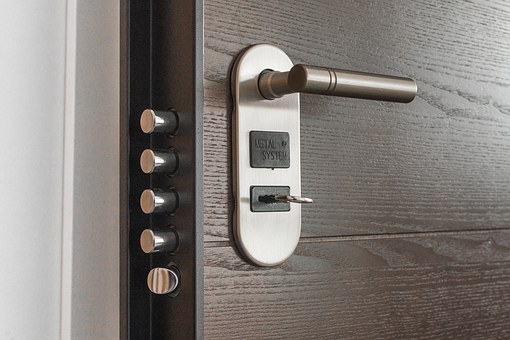Seniors and Security: 7 Tips for Home Security
Whether you live in an apartment or gated community, home security is important. Last year I wrote an article on home safety for seniors, sharing tips on topics like furniture placement for easier navigation and the storage of emergency items. Today, I am embarking on a two-week series on security, sharing tips for home security and situational awareness in public places.
With regard to the occurrence of homes being robbed, I’d, personally. like to believe seniors experience more home break-ins than any other age group. However, the statistics do not reflect this. According to the Bureau of Justice Statistics, from 2003-2013, of the 3,545,610 household burglaries reported, 17.8% of those cited a senior as the victim. This means that over a ten-year period, 631,119 senior households were victimized, an average of just over 63,000 households per year. I think the number is low, and that brings up another interesting point, one of definition.
When someone breaks into and enters your residence they are, if caught, normally charged with both burglary and home invasion. The difference between the two is a question of degree, but it does bare mentioning. Phil Brown, a prominent Las Vegas defense attorney, makes these distinctions: “burglary is entering a protected structure with the intent to commit a crime inside. In contrast, home invasion is forcibly entering an occupied residence. To be considered “occupied” someone must live in the residence, but that person does not have to be home at the time of the offense.” The BJS article and statistic I cited earlier does not include home invasions. Furthermore, I personally believe many break-ins are, for one reason or another, never reported.
My goal today, is not to get stuck on statistics or definitions. I mention them only to show that there is a problem. It could be 100,000 or more seniors who are annually victimized. I only wish to share advice from the experts that could better insure the security of one’s home. Short of installing an expensive alarm system and paying a monthly monitoring fee, here are seven tips that could better protect a home from an unwanted intruder:
- Lock all doors and windows – Whether you are home or away, all doors and windows, recommends Safe Home Security, should be securely locked.
- Do not enter your house if the door or a window is open – Go down the block, call 911 and wait for the police. You don’t want to surprise your intruder.
- Install a peephole – All the gurus recommend a peephole in the front door so you can see who is there. Johnny Snap a security blogger recommends a wide-angle peephole.
- Get a dog – Having a dog, says Ralph Goodman, a security expert, decreases the likelihood of your home being targeted. The dog does not have to be aggressive, but will bark if a stranger approaches.
- Know your neighbors – Know everyone up and down your block. Know where they work, if they have small children, teenage drivers or pets. Hillary Johnston, writing for Safewise also recommends keeping front yards nicely groomed.
- Hide valuables in a safe – Lanier Upshaw, a security consultant and risk management company, recommends a “robust home safe.” You can be as expensive and creative as your needs dictate. Good for safeguarding cash, jewelry and important documents.
- Install a strong, reliable door – There are lots of choices you can make. Lansing Michael, a security blogger, suggests using heavy wood or metal as well as installing deadbolts.
We are all potential targets for a home break-in. Seniors may be more vulnerable and susceptible to the threat. The above precautions are hardly an all-inclusive list of steps to increasing home security. There are literally hundreds of suggestions out there, running the gamut from electric fences to alarm systems and security cameras.
My goal today was not to share an extensive list, but, rather, to make you think of how secure your home is and what changes you may need to make. The number of things that can be done is too exhaustive for one article.This is merely is just a starting place; the internet is rife with articles and suggestions. The best places to start are the simple changes and what is common sense. If nothing else, I hope this started you thinking on how to better secure your home and that of the senior in your life.


Solid info. Thanks Doug